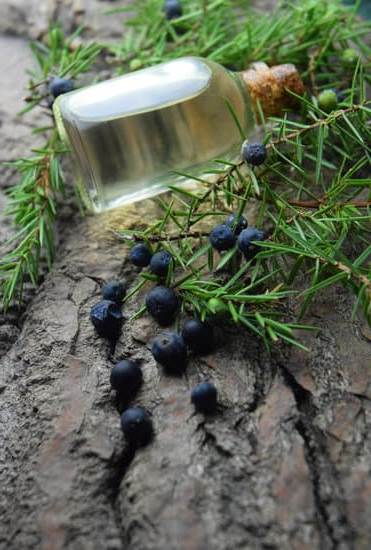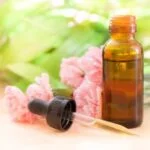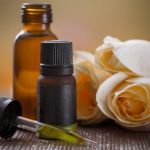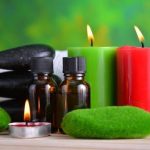Aromatherapy has been a topic of debate when it comes to its association with witchcraft, raising the question: is aromatherapy witchcraft? This controversy stems from misconceptions and misunderstandings surrounding both practices. In this article, we delve into the intersection of aromatherapy and witchcraft, examining their histories, beliefs, and scientific foundations to shed light on the similarities and differences between the two.
The use of aromatherapy dates back centuries, with its origins rooted in various cultures around the world. Essential oils have been utilized for their therapeutic properties, promoting relaxation, easing pain, and improving overall well-being. On the other hand, witchcraft has a complex history that often conjures images of spells, potions, and mystical rituals. By understanding the historical context of both practices, we can better grasp how they have evolved over time.
Despite their distinct backgrounds, aromatherapy and witchcraft share some common elements that have led to confusion and misconceptions. Both involve harnessing natural elements for healing purposes and focusing on intention and energy in their practices. However, it’s essential to debunk myths that may perpetuate negative stereotypes about either practice and explore how they can coexist harmoniously in today’s modern world.
History of Aromatherapy
Aromatherapy has a rich history that dates back thousands of years, with origins rooted in ancient civilizations such as Egypt, China, and India. The use of aromatic plant extracts and essential oils for healing and well-being can be traced back to these early times. In fact, the term “aromatherapy” was coined in the 20th century by French chemist René-Maurice Gattefossé, who discovered the healing properties of lavender oil after burning his hand in a laboratory accident.
The practice of aromatherapy involves the application and inhalation of essential oils derived from plants to promote physical, emotional, and mental health. These potent oils are known for their therapeutic benefits, ranging from relieving stress and anxiety to promoting relaxation and improving sleep quality. Aromatherapy is commonly used in massage therapy, skincare products, bath salts, candles, and diffusers for its calming and soothing effects on the body and mind.
Some popular essential oils used in aromatherapy include lavender for relaxation, peppermint for headaches and nausea relief, tea tree for its antibacterial properties, and eucalyptus for respiratory support. Each essential oil possesses unique characteristics and benefits that cater to various needs and preferences.
When used correctly and safely, aromatherapy can have a positive impact on one’s overall well-being without any supernatural or mystical connotations associated with witchcraft. It is important to recognize that aromatherapy is a holistic healing practice backed by scientific evidence rather than being synonymous with witchcraft.
- Aromatherapy focuses on using natural plant extracts whereas Witchcraft involves supernatural beliefs
- Aromatherapy uses essential oils for healing purposes while Witchcraft may involve spells or rituals
- Aromatherapy has been studied scientifically regarding its effects while Witchcraft is often seen as more spiritual or metaphysical
What Is Witchcraft? Understanding the Practice and Misconceptions
Witchcraft, often misunderstood and misrepresented, is a spiritual practice that encompasses a variety of beliefs, traditions, and practices. Contrary to popular misconceptions, it is not solely about casting spells or practicing dark magic. At its core, witchcraft is about connecting with nature, harnessing energy, and utilizing tools such as herbs and crystals for healing and manifestation purposes. It is a personal and empowering practice that focuses on intention setting and aligning oneself with the natural world.
To better understand what witchcraft truly entails, here are some key points to consider:
- Witchcraft emphasizes the importance of intention and energy manipulation: Practitioners often utilize rituals, spells, and other spiritual practices to manifest their desires or promote healing.
- It is a diverse practice with various traditions: From Wicca to traditional witchcraft to modern eclectic practices, there is a wide range of belief systems within the umbrella term of witchcraft.
- Respect for nature and the interconnectedness of all living beings are central tenets: Many witches view themselves as stewards of the earth and strive to live in harmony with the natural world.
Despite these fundamental aspects of witchcraft, there continues to be a stigma surrounding the practice. Some individuals mistakenly equate witchcraft with evil or malevolent intentions based on historical stereotypes perpetuated by popular culture. It is essential to recognize that witchcraft is simply a spiritual path that can provide practitioners with guidance, empowerment, and connection to something greater than themselves.
Overall, understanding what witchcraft truly entails can help dispel myths and misconceptions surrounding this ancient practice. By recognizing its spiritual nature and honoring its diversity of beliefs and practices, we can foster a greater sense of acceptance and appreciation for those who choose to follow this unique path.
Debunking Myths
Myth: Aromatherapy Is a Form of Witchcraft
One common misconception that surrounds aromatherapy is the belief that it is a form of witchcraft. This misunderstanding stems from the use of essential oils in both practices and the association with spiritual or mystical beliefs. However, it is important to clarify that aromatherapy is a holistic healing practice that focuses on using natural plant extracts to promote health and well-being. There is no connection to witchcraft, as aromatherapy does not involve any ritualistic spellwork or magical incantations.
Understanding the Differences Between Aromatherapy and Witchcraft
It is crucial to distinguish between aromatherapy and witchcraft to dispel any myths or misconceptions. While both practices may harness the power of nature for healing purposes, the intentions and methods are markedly different. Aromatherapy primarily utilizes essential oils for their therapeutic properties, such as reducing stress, improving sleep, or alleviating physical ailments. On the other hand, witchcraft encompasses a variety of spiritual beliefs and practices that may involve rituals, spells, divination, and connecting with energies beyond the physical realm.
The Importance of Education and Awareness
To address the misconceptions between aromatherapy and witchcraft, it is essential to educate individuals about the principles and origins of each practice. By promoting awareness and understanding, we can foster respect for diverse belief systems and encourage informed decision-making when exploring holistic healing modalities.
It is crucial to approach these topics with an open mind, acknowledging the diversity of perspectives and experiences within alternative medicine practices. Embracing knowledge and compassion can help bridge gaps in understanding and promote harmony among different communities with varying beliefs.
Similarities and Differences
A common misconception that often arises in discussions about aromatherapy is whether it is connected to witchcraft. It is important to clarify that aromatherapy is not synonymous with witchcraft. Aromatherapy is a holistic healing practice that utilizes essential oils extracted from plants to promote physical, emotional, and mental well-being. On the other hand, witchcraft is a diverse spiritual and magical practice that may incorporate herbs, including essential oils, but encompasses a wide range of beliefs and traditions.
One key difference between aromatherapy and witchcraft is their underlying principles and intentions. Aromatherapy focuses on harnessing the natural properties of essential oils to support health and relaxation through methods such as inhalation or topical application. In contrast, witchcraft may involve rituals, spells, or incantations aimed at manifesting specific outcomes or invoking spiritual energies. While both practices acknowledge the potential power of plant-based substances like essential oils, they approach their use from distinct perspectives.
Despite these differences, there are some overlapping elements between aromatherapy and certain forms of witchcraft. Some practitioners of modern witchcraft may incorporate the use of essential oils in their spellwork or rituals for purposes such as enhancing focus, relaxation, or energy cleansing.
This intersection highlights how individuals can draw inspiration from diverse sources to create their unique spiritual practices. Ultimately, it’s essential to recognize that while aromatherapy and witchcraft can intersect in some ways, they are distinct practices with varied histories, aims, and approaches.
| Aromatherapy | Witchcraft |
|---|---|
| Focuses on promoting health and well-being | Incorporates magical rituals and spells |
| Utilizes essential oils derived from plants | May include the use of herbs for various purposes |
| Uses scents to affect mood and emotions | Might involve invoking spiritual energies or deities |
The Science Behind Aromatherapy
Aromatherapy is a holistic healing treatment that uses natural plant extracts, such as essential oils, to promote physical and emotional well-being. The practice of aromatherapy dates back thousands of years and has been used by various civilizations for its therapeutic benefits. Essential oils are highly concentrated plant extracts that contain volatile compounds with unique properties. When these essential oils are inhaled or applied to the skin, they can interact with the body’s chemistry and produce various physiological effects.
The science behind aromatherapy lies in the chemical composition of essential oils and their interactions with the body. Essential oils contain compounds that can trigger responses in the limbic system, which is the part of the brain responsible for emotions, behavior, and memory. For example, inhaling lavender essential oil can have a calming effect on the nervous system and reduce feelings of anxiety or stress. Similarly, peppermint essential oil can help improve focus and concentration due to its invigorating scent.
Research has shown that certain essential oils have antimicrobial, anti-inflammatory, and analgesic properties, making them valuable tools for managing various health conditions. For instance, tea tree oil is known for its antibacterial properties and can be used topically to treat acne or skin infections.
Eucalyptus essential oil is commonly used to relieve respiratory issues such as congestion or coughs due to its decongestant properties. Overall, understanding the science behind how essential oils work allows us to harness their therapeutic benefits for improving our overall well-being.
| Essential Oil | Benefits |
|---|---|
| Lavender | Calming effect on nervous system |
| Peppermint | Improves focus and concentration |
| Tea Tree | Antibacterial properties for treating acne or infections |
| Eucalyptus | Relieves respiratory issues like congestion or coughs |
Ethical Considerations
Intentions Behind Aromatherapy
Aromatherapy is a holistic healing practice that harnesses the power of natural essential oils to promote physical, emotional, and mental well-being. The intentions behind aromatherapy are rooted in the belief that these essential oils have therapeutic properties that can positively impact an individual’s health. The use of essential oils in aromatherapy is often seen as a way to support the body’s natural healing processes and enhance overall wellness.
Beliefs Behind Witchcraft
On the other hand, witchcraft is a spiritual practice or belief system that encompasses a wide range of traditions and practices. While stereotypes and misconceptions often portray witchcraft as dark or evil, many practitioners view it as a sacred and empowering path for connecting with nature, honoring ancestral wisdom, and manifesting positive change. At its core, witchcraft emphasizes personal responsibility, mindfulness, and the interconnectedness of all beings.
Intersection of Intentions and Beliefs
When considering the ethical considerations of aromatherapy and witchcraft, it is important to acknowledge the intersection of intentions and beliefs behind these practices. Both aromatherapy and witchcraft emphasize the importance of intentionality, mindfulness, and respect for natural elements. While aromatherapy focuses on using essential oils for therapeutic purposes, witchcraft may incorporate rituals, spells, or energy work to manifest desired outcomes. Ultimately, both practices seek to promote healing, balance, and harmony in individuals’ lives.
By understanding the intentions and beliefs behind aromatherapy and witchcraft, we can appreciate the diverse ways in which individuals connect with themselves, others, and the world around them. Whether utilizing essential oils for physical well-being or engaging in ritualistic practices for spiritual growth, both aromatherapy and witchcraft offer unique paths for self-care and personal development.
It is crucial to approach these practices with an open mind and respect for individual beliefs while exploring their potential benefits for holistic healing.
Conclusion
In conclusion, it is evident that the controversy surrounding whether aromatherapy is witchcraft stems from misconceptions and lack of understanding. Aromatherapy is a practice that has its roots in ancient civilizations and has been utilized for its therapeutic benefits for centuries.
On the other hand, witchcraft is a spiritual practice with its own set of beliefs and rituals. While there may be some overlapping elements between the two practices, it is important to recognize that they serve different purposes and hold different meanings for individuals.
Debunking the myths that surround the connection between aromatherapy and witchcraft is crucial in fostering a better understanding of both practices. By exploring the history, uses, and benefits of aromatherapy alongside an understanding of what witchcraft truly entails, we can appreciate the unique qualities of each practice without conflating them or misrepresenting their intentions. It is vital to approach these topics with an open mind and respect for individual beliefs and traditions.
Ultimately, whether one chooses to engage in aromatherapy, witchcraft, or both, what matters most is the intention behind these practices. Both aromatherapy and witchcraft have the potential to promote healing, relaxation, and spiritual growth when approached with mindfulness and respect.
By embracing the intersection of aromatherapy and witchcraft while honoring individual practices, we can create a more inclusive space where diverse belief systems are accepted and celebrated. Let us continue to explore the wonders of these practices with an open heart and a willingness to learn from each other’s perspectives.
Frequently Asked Questions
What Is the Spiritual Meaning of Aromatherapy?
The spiritual meaning of aromatherapy revolves around the idea that certain scents have the power to influence our mood, emotions, and even our spiritual well-being. It is believed that by using essential oils in aromatherapy practices, we can align ourselves with positive energies and promote healing on a deeper level.
What Belief Is Aromatherapy Based On?
Aromatherapy is based on the belief that plants and their essential oils have healing properties that can benefit both the physical body and the mind. This belief stems from ancient practices of using plant extracts for medicinal purposes and promoting overall well-being. Aromatherapy emphasizes the connection between nature, spirituality, and personal wellness.
What Does the Bible Say About Essential Oils?
The Bible does not explicitly mention essential oils or aromatherapy as we know them today. However, there are references to aromatic substances such as frankincense and myrrh being used in religious ceremonies and rituals.
Some believe that these references suggest a recognition of the spiritual significance of scents and their ability to evoke reverence and connection to a higher power in biblical times.

Are you looking for a natural way to improve your health and wellbeing?
If so, aromatherapy may be the answer for you.




